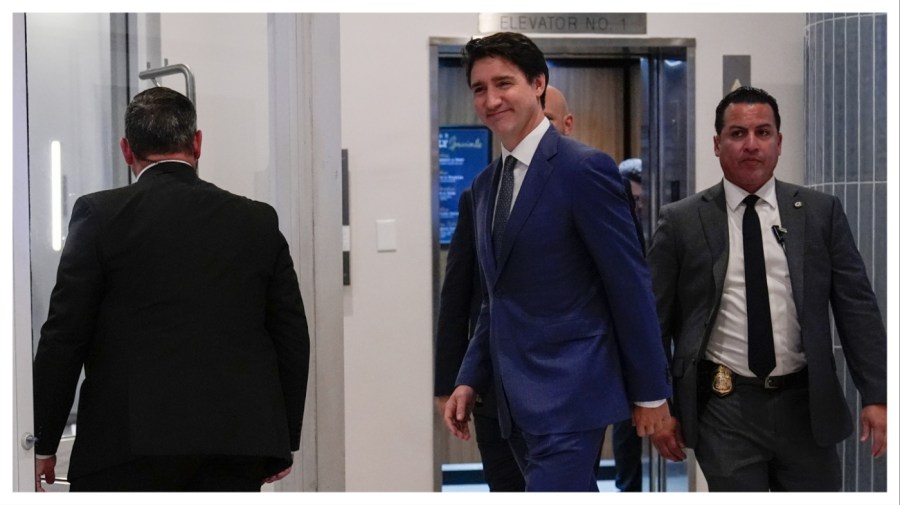
The majority of Canadians are opposed to their country merging with the U.S., something President Trump has suggested in recent weeks, according to new surveys published on Friday.
The new YouGov polls, conducted in both the U.S. and Canada, found that 77 percent of Canadians are strongly or somewhat against Canada becoming a part of the U.S. while 15 percent said they are supportive of the idea. Some eight percent were unsure.
At least seven in 10 of Canadian citizens, who voted for major parties in the country’s 2021 federal elections, are strongly or somewhat unsupportive of a potential merger, according to the survey.
President Trump first trolled Canadian Prime Minister Justin Trudeau, calling him the “governor” of Canada in December. After Trudeau announced in early January that he would be resigning ahead of Canada’s general elections later this year, Trump proposed a merger between the two neighboring nations and stated that if it would become reality, there would be no need for tariffs.
Trump has repeatedly threatened to impose a 25 percent tariff on Canada and Mexico over the flow of fentanyl that is coming into the U.S. and the situation at the southern border. He also cited the trade deficit with both nations, which are the U.S. largest trading partners.
Trudeau said on Friday that Canada “won’t back down” and that if the tariffs are imposed, Ottawa would respond.
The idea of combining the U.S. and Canada has more support among Americans. Around 36 percent of U.S. adults support the potential merger while another 42 percent are against it, according to the poll. Some 22 percent were not sure.
Citizens of both nations think the fusion will not be an easy task. Approximately 74 percent of Canadians and 68 percent of Americans stated that it would be very or somewhat difficult for Canada to fully be part of the U.S. Some 15 percent of U.S. adults and 13 percent of Canada had the opposite view.
The majority of Canadians, 68 percent, think the country merging with the U.S. would be a bad outcome for Ottawa while 13 percent said it would be a good development.
Americans are split on the issue, with 32 percent saying it would be a bad deal for Canada. The other 29 percent said it would be a good outcome, according to the poll.
The survey was done from Jan. 16-22 among 1,091 U.S. adults. It had a margin of error of around four percentage points. The Canada poll was completed from Jan. 22-28 among 1,030 Canadian adults. The margin of error was around three percentage points.












